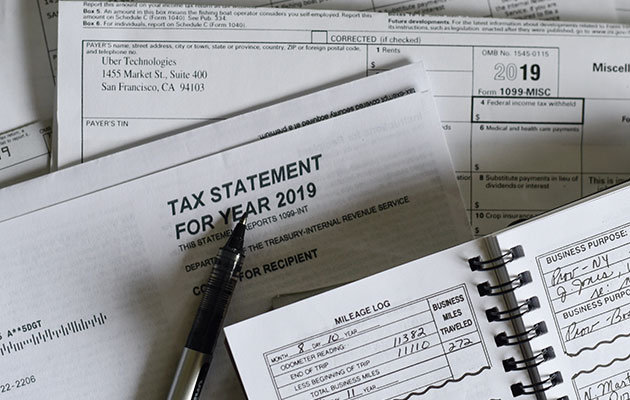-
Articles
Thailand’s Royal Decree on the Supervision of Digital Platform Services
1. Background
At present, as there are a growing number of digital platform service providers across businesses of different types and characteristics in Thailand, digital platform services have become more important to the economic and social systems. Thus, Thailand has issued a Royal Decree on the Supervision of Digital Platform Services Required to be Notified B.E. 2565 (2022) (the “Royal Decree”) under the Electronic Transaction Act B.E. 2544 (2001), which was published in the Royal Thai Government Gazette on 23 December 2022; to regulate the digital platform businesses by: defining the types and characteristics of digital platform businesses/services that require to be notified; imposing cooperation mechanisms between government agencies; collating information between relevant agencies and prescribing the rules for operating and supervising digital platform businesses in order to protect users of the services.
This Royal Decree shall be effective after 240 days from the date of its publication in the Royal Thai Government Gazette.
2. Key Takeaways
I. Digital Platform Service under the Royal Decree
Under the Royal Decree, “Digital Platform Service” refers to a service that provides an intermediary digital platform which manages data in order to connect operators on a digital platform, consumers and users through a computer network for the purpose of electronic transactions, with or without a service fee. However, this does not include digital platform services that offer goods or services merely from a single digital platform service provider or its affiliates, regardless of whether the offering of such goods or services has been made to a third party or its affiliate.
II. Exception to the Royal Decree
The Royal Decree does not apply to the digital platform providers under the supervision of other authorities, such as the Bank of Thailand, the Securities and Exchange Commission and the government agencies as described under Section 4 of the Royal Decree.
III. Digital Platform Service Providers based Overseas
This Royal Decree applies to any digital platform service provider with an objective of servicing users in Thailand, regardless of where such service provider is located. A digital platform service provider residing outside of Thailand with any of the following characteristics shall be deemed to have an objective of servicing users in Thailand, among others:
(a) Digital platform service that uses Thai language in all or some parts of its display results;
(b) Digital platform service that uses or allows the use of Thai Baht as a currency for payment;
(c) Digital platform service that has an office, agency or personnel which supports or assists users of the service in Thailand; and
(d) Digital platform service with any other characteristic as further prescribed by the Electronic Transactions Development Agency (the “ETDA”).
In this respect, the overseas digital platform service providers would also need to appoint a local coordinator in order to deal with the ETDA in Thailand.
IV. Obligation to Notify
Before commencing the business and on an annual basis, the digital platform service providers with any of the following characteristics are required to notify the ETDA of information and evidence as stipulated under Section 12 of the Royal Decree (e.g. information pertaining to the digital platform service provider, digital platform service and users of the service):
(a) Digital platform service provider with the gross income from providing a service in Thailand of more than Baht 1,800,000 per year in the case where such service provider is a natural person, or Baht 50,000,000 per year in the case of a juristic person; or
(b) Digital platform service provider with more than 5,000 monthly users in Thailand, calculated from the previous average monthly usage, according to the criteria announced by the ETDA.
Other digital platform service providers that do not fall within the criteria set out above would still need to notify the ETDA of their brief information, information regarding digital platform services, users of the services and their coordinators (if any) prior to the commencement of their businesses, and on an annual basis, as the case may be.
In this regard, any person that operates a digital platform service before this Royal Decree is effective shall notify the ETDA within 90 days after this Royal Decree becomes effective.
V. Obligation to Inform
Apart from the notification requirement, the digital platform service providers with specific characteristics as described in Item III above and under Section 16 of the Royal Decree (i.e. a digital platform service provider who provides service to users in exchange for a service fee) would also need to inform their users of terms and conditions of the service before or while using such service. The terms and conditions shall at least include the following, among others:
(a) Conditions for service provision, cessation or termination of services, and calculation of service fees;
(b) Accession and usage of information received from providing digital platform service; and
(c) Channels to submit inquiries, complaints and dispute resolutions, including the timeframe for such procedures.
VI. Prohibition from Conducting Digital Platform Service
In the case where the digital platform service provider violates or does not comply with the rules prescribed in this Royal Decree, the notifications of the Electronic Transaction Committee under the laws on electronic transactions or of the ETDA, such service provider may be barred from providing the service until it fully complies with said rules. Failure to do so within 90 days from the date of the prohibition could result in withdrawal of the notification of such service provider.
This is intended merely to provide a regulatory overview. It is not intended to be comprehensive, nor to provide legal advice. Should you have any questions on this or on other areas of law, please do not hesitate to contract any of the authors.








He advises on a wide range of merger-and-acquisition transactions, joint ventures, foreign direct investments, general corporate, international corporate finance, and restructurings. His expertise is advising, structuring and leading complex transactions both within and outside of Thailand. He regularly represents, among others, Japanese, Thai and international investors, international investment banks, international private equity investors, hedge funds and international corporations and financial institutions. His main areas of practice include public and private mergers and acquisitions (takeover rules), legal due diligence, joint ventures, fund raising, listings, block trades, stock exchange and securities exchange related laws, restructuring of shareholdings and general corporate advice. His additional areas of practice also cover banking and finance, renewable energy in Japan and Thailand, exchange control law, labor law, and debt restructurings. Before setting up the Bangkok office of Nishimura & Asahi in 2013, he worked with Linklaters for almost a decade. He is also a registered arbitrator of the Thai Arbitration Institute (TAI) with the areas of expertise in corporate M&A, joint venture, banking and finance, capital markets, debt restructurings and energy.